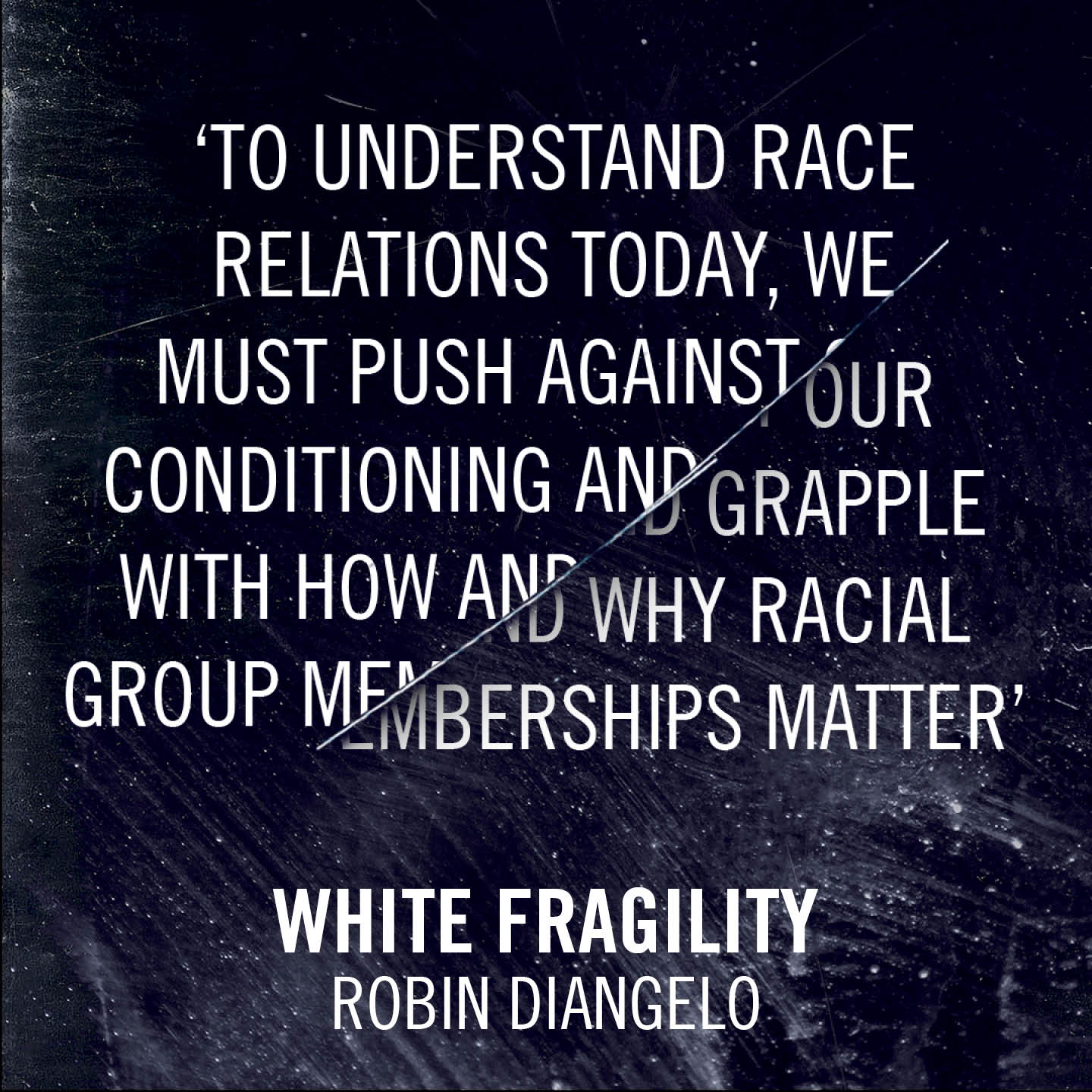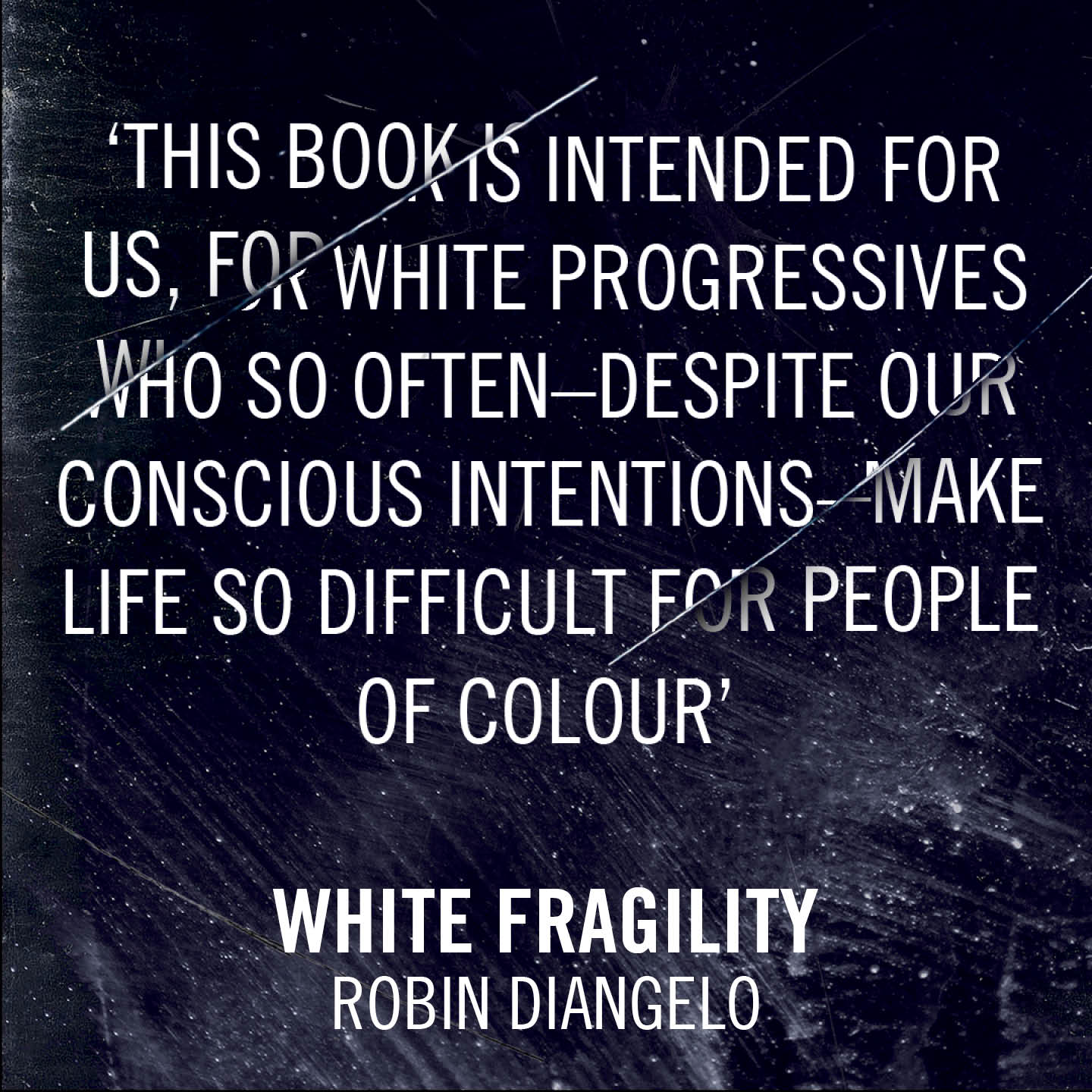- Home |
- Search Results |
- White Fragility by Robin DiAngelo
White Fragility by Robin DiAngelo
White Fragility is characterised by emotions such as anger, fear, and guilt, and by behaviours including argumentation and silence. These behaviours, in turn, function to reinstate white racial equilibrium and prevent any meaningful cross-racial dialogue.
Read an extract from this groundbreaking and timely book in which antiracist educator Robin DiAngelo deftly illuminates the phenomenon of white fragility.

I began to see what I think of as the pillars of whiteness – the unexamined beliefs that prop up our racial responses. I could see the power of the belief that only bad people were racist, as well as how individualism allowed white people to exempt themselves from the forces of socialization. I could see how we are taught to think about racism only as discrete acts committed by individual people, rather than as a complex, interconnected system. And in light of so many white expressions of resentment toward people of color, I realized that we see ourselves as entitled to, and deserving of, more than people of color deserve; I saw our investment in a system that serves us. I also saw how hard we worked to deny all this and how defensive we became when these dynamics were named. In turn, I saw how our defensiveness maintained the racial status quo.
Personal reflections on my own racism, a more critical view of medial and other aspects of culture, and exposure to the perspectives of many brilliant and patient mentors of color all helped me to see how these pillars of racism worked. It became clear that if I believed that only bad people who intended to hurt others because of race could ever do so, I would respond with outrage to any suggestion that I was involved with racism. Of course that belief would make me feel falsely accused of something terrible, and of course I would want to defend my character (and I certainly had many of my own moments or responding in just those ways to reflect on). I came to see that the way we are taught to define racism makes it virtually impossible for white people to understand it. Given our racial insulation, coupled with misinformation, any suggestion that we are complicit in racism is a kind of unwelcome and insulting shock to the system.

If, however, I understand racism as a system into which I was socialized, I can receive feedback on my problematic racial patterns as a helpful way to support my learning and growth. One of the greatest social fears for a white person is being told that something we have said or done is racially problematic. Yet when someone lets us know that we have just done such a thing, rather than respond with gratitude and relief (after all now that we are informed, we won’t do it again), we often respond with anger and denial. Such moments can be experienced as something valuable, even if temporarily painful, only after we accept that racism is unavoidable and that it is impossible to completely escape having developed problematic racial assumptions and behaviours.
None of the white people whose actions I describe in this book would identify as racist. In fact, they would most likely identify as racially progressive and vehemently deny any complicity with racism. Yet all their responses illustrate white fragility and how it holds racism in place. These responses spur the daily frustrations and indignities people of color endure from white people who see themselves as open-minded and thus not racist. This book is intended for us, for white progressives who so often-despite our conscious intentions-make life so difficult for people of color. I believe that white progressives cause the most daily damage to people of color. I define a white progressive as any white person who thinks he or she is not racist, or is less racist, or in the “choir”, or already “gets it”. White progressives can be the most difficult for people of color because, to the degree that we think we have arrived, we will put our energy into making sure others see us having arrived. None of our energy will go into what we need to be doing for the rest of our lives: engaging in ongoing self-awareness, continuing education, relationship building, and actual antiracist practice. White progressives do indeed uphold and perpetrate racism, but our defensiveness and certitude make it virtually impossible to explain to us how we do so.
This book does not attempt to provide the solution to racism. Nor does it attempt to prove that racism exists; I start from that premise. My goal is to make visible how one aspect of white sensibility continues to hold racism in place: white fragility.